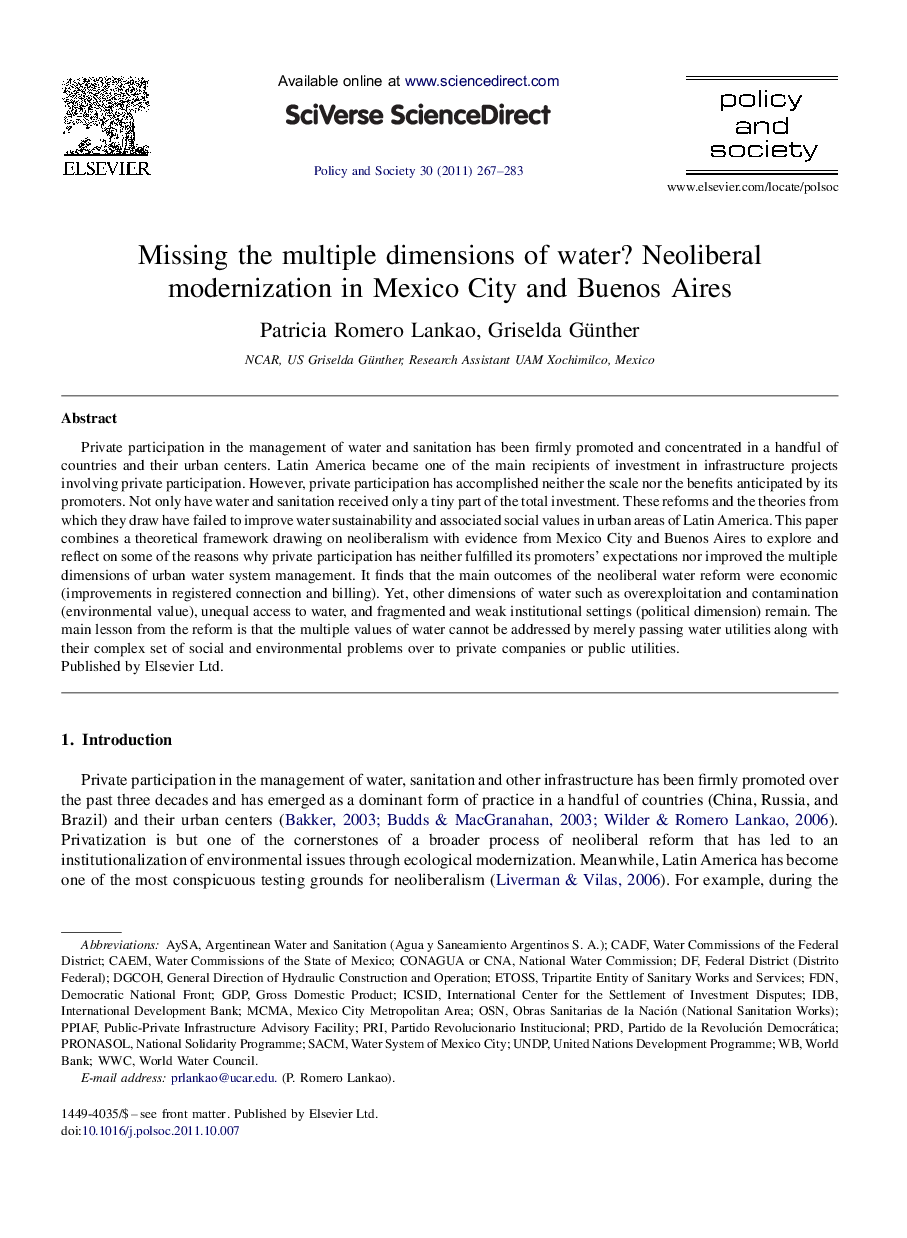| Article ID | Journal | Published Year | Pages | File Type |
|---|---|---|---|---|
| 1061468 | Policy and Society | 2011 | 17 Pages |
Private participation in the management of water and sanitation has been firmly promoted and concentrated in a handful of countries and their urban centers. Latin America became one of the main recipients of investment in infrastructure projects involving private participation. However, private participation has accomplished neither the scale nor the benefits anticipated by its promoters. Not only have water and sanitation received only a tiny part of the total investment. These reforms and the theories from which they draw have failed to improve water sustainability and associated social values in urban areas of Latin America. This paper combines a theoretical framework drawing on neoliberalism with evidence from Mexico City and Buenos Aires to explore and reflect on some of the reasons why private participation has neither fulfilled its promoters’ expectations nor improved the multiple dimensions of urban water system management. It finds that the main outcomes of the neoliberal water reform were economic (improvements in registered connection and billing). Yet, other dimensions of water such as overexploitation and contamination (environmental value), unequal access to water, and fragmented and weak institutional settings (political dimension) remain. The main lesson from the reform is that the multiple values of water cannot be addressed by merely passing water utilities along with their complex set of social and environmental problems over to private companies or public utilities.
